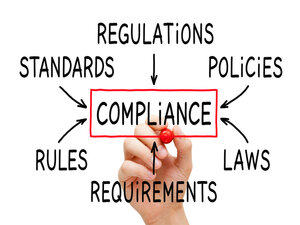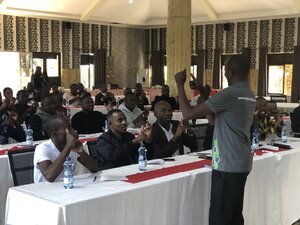Course Overview
All businesses are at danger from fraud, which is a problem that is getting worse given the current state of the economy. The role of the board of directors in fraud prevention and detection is the subject of this interactive one-day workshop.
A risk assessment team should be formed by management and comprise members from the accounting and finance departments, legal counsel, risk management, internal audit, and any other relevant parties. To find fraud threats, the group should brainstorm. The team must comprehend the population of fraud risks in order to complete this assignment because these risks are related to fake financial reporting, misappropriation, and corruption.
The team should take the following factors into account when surveying the population of fraud risks:
- Opportunities, pressures, and incentives
- The potential for management to bypass controls
- Information technology and the possibility of fraud
- The dangers of regulatory, legal, and reputational fraud



Course Objectives
Course Outline
All businesses, large and small, public and private, are at risk from fraud. The Auditor General’s reports detail significant losses of public funds in the public sector. In the private sector, firms globally lose at least 5% of their revenue to fraud. The situation is made worse by the pervasive use of technology, which accelerates fraud and increases losses.
Organizations require strong anti-fraud policies and all-encompassing proactive anti-fraud strategies. A risk-based strategy would allow for the efficient use of the resources utilized in fraud detection and prevention, as well as appropriate actions. The strategy calls for managing fraud risk, including risk assessment, quantification, mitigation, and monitoring.
Course Outcomes
Participants will gain knowledge of the specifics of fraud and fraud risk management in this course. They will comprehend the most typical forms of fraud, including asset manipulation, falsifying financial statements, and corruption. The training will concentrate on the following ways that firms can combat fraud as a part of their risk management initiatives:
- Recognizing, evaluating, and controlling fraud risks;
- Fostering a culture of fraud risk management within enterprises;
- Creating internal control measures that reduce fraud risks;
- Responding to fraud situations that have been found;
- Utilizing technology to reduce the risk of fraud
Program objectives include:
- Enabling directors to fulfill their obligations against corporate fraud
- Increase public understanding of the primary risk indicators for internal and external fraud.
- Improve your knowledge of the most important fraud prevention and detection measures.
- Think about the threats from financial crime today and the risks of bribery and corruption.
- Talk about and take notes on recent fraud cases
Governance and Board Development Training Highlights
Training Feedback
Happy Customers
Course Outline
Role of board of directors
- Enact a successful business ethics program.
- The dangers of deception.
- Keep an eye on the fraud risk assessment.
- Keep an eye on activities relating to control and management fraud.
- Monitor the management-established internal controls.
- The apex should strike the proper tone.
- Possess the capacity to hire and compensate outside expertise.
- Provide proof of active participation to outside auditors. enact a successful business ethics program.
- The dangers of deception.
- Keep an eye on the fraud risk assessment.
- Keep an eye on activities relating to control and management fraud.
- Monitor the management-established internal controls.
- The apex should strike the proper tone.
- Possess the capacity to hire and compensate outside expertise.
- Provide proof of active participation to outside auditors.
Role of firm management
- Comprehend fraud and its warning signs.
- Recognize their responsibilities within the internal control structure.
- Policy and procedure manuals should be studied and understood.
- As needed, take part in developing and constructing a powerful control environment.
- Take part in surveillance activities.
- Report fraud suspicions or instances.
- Assist with investigations.
Who Should Attend
- Senior marketing directors or managers
- Relationship managers and
- Customer relationship managers
- Professionals in customer service, supervisors,
- Team leaders, and managers
- Sales experts, salespeople, and sales analysts
- Entrepreneurs and founders of startups
Trainers Available for:
- In-House Trainings
- Online Training
- 2 Hours Crush Program
- Half Day Program
- One Day Program
- Two Days Full Program
Training Techniques
- Power point Presentations
- Engaging conversations
- Case studies
- Exercises in solving problems
- Focus Group Conversations
- Games in Management
- Skits and modeling the part
Request a Quote

